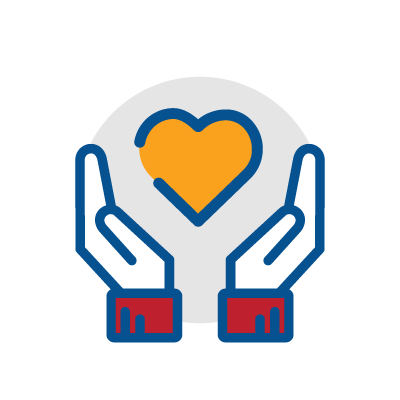 Respond & Recover
Respond & Recover
In times of crisis such as natural disasters, pandemics, or other emergencies, quick and effective action can help nutrition service providers to ensure older adults continue to receive services despite the challenging circumstances. Effective response and recovery strategies can help mitigate the impact of the crisis and minimize disruptions to nutrition services.
 Briefs
Briefs
- Frequently Asked Questions Nutrition Services Emergency Management — Information on providing nutrition services during an emergency (ACL, 2020)
- Drinking Water Training and Education— Resource collection with training related to water and public health (CDC)
 Guides
Guides
- Food Safety Emergency Response Pocket Guide Disaster Edition— Guide on food safety emergencies caused by disasters and weather-related events (USDA, 2022)
- Managing Older Americans Act Funded Senior Nutrition Programs During Emergencies — Frequently asked questions to help programs plan for and adapt to common emergencies (Nutrition and Aging Resource Center, 2021)
- Reaching At-Risk Populations in an Emergency— Information on identifying, locating, and reaching all affected groups in an emergency (CDC)
- Disaster Assistance for Professionals— Resources to help professionals assist older adults with resources and benefits after disasters (NCOA)
- Disaster Assistance: 6 Helpful Programs for Older Adults— Article outlining services, supports, and programs that provide relief (NCOA, 2024)
- Emergency Playbook for Federal Human Services Programs— Lessons learned and recommendations for responding to emergencies and disasters (HHS Office of the Assistant Secretary for Planning and Evaluations, 2021)
 Quick Guides
Quick Guides
- Emergency Preparedness and Response — Collection of trainings to help prepare for and respond to emergencies (Nutrition and Aging Resource Center)
- Innovations and Lessons Learned From COVID-19 — Examples from the aging network (Nutrition and Aging Resource Center)
- Social Enterprising Aging Network Example: REAL Grille — Example of innovation including use of a food truck and catering services (Nutrition and Aging Resource Center)
 Tools & Toolkits
Tools & Toolkits
- Drinking Water Advisories— Overview on water advisories (CDC)
- Emergencies and Indoor Air Quality— Information on managing air quality impact of natural and human-made disasters (Environmental Protection Agency)
- Emergency Food Resources— Suggested food emergency supplies, safety and sanitation information, and more (Ready.gov)
- First Responder Training— Free modules to improve understanding of behavioral health effects of disasters and emergency response (SAMHSA)
- Nebraska Disaster and Pandemic Reopening Plan— Example disaster plan (Northeast Area Agency on Aging, 2022)

